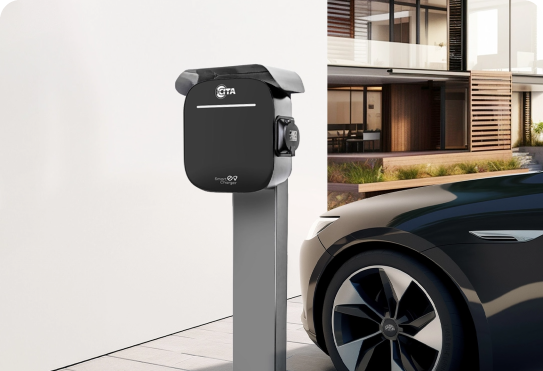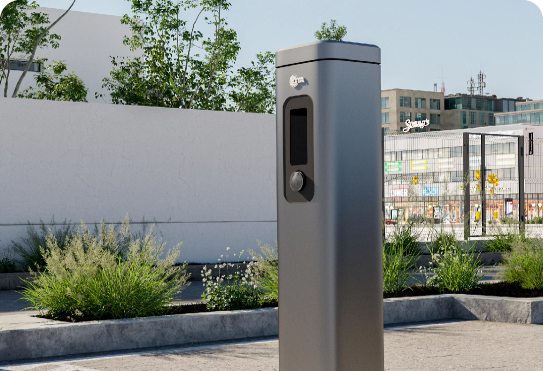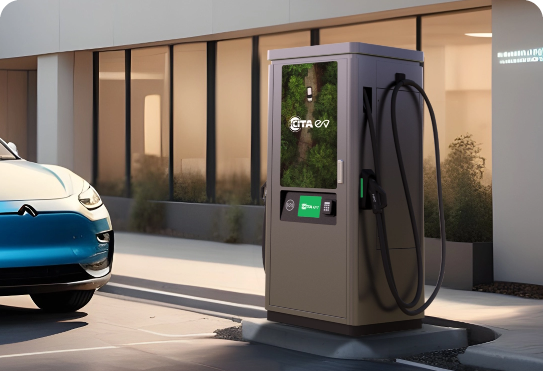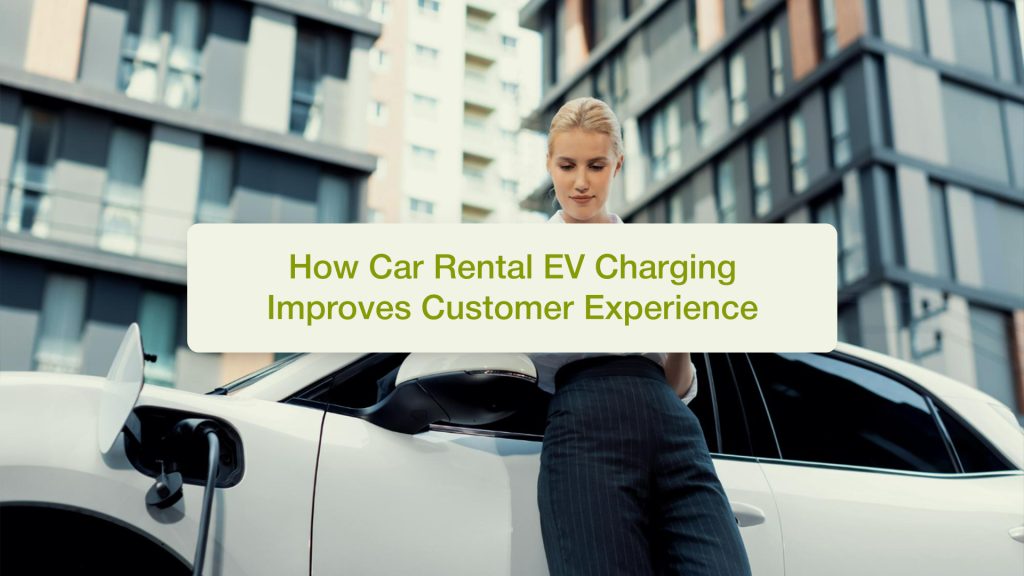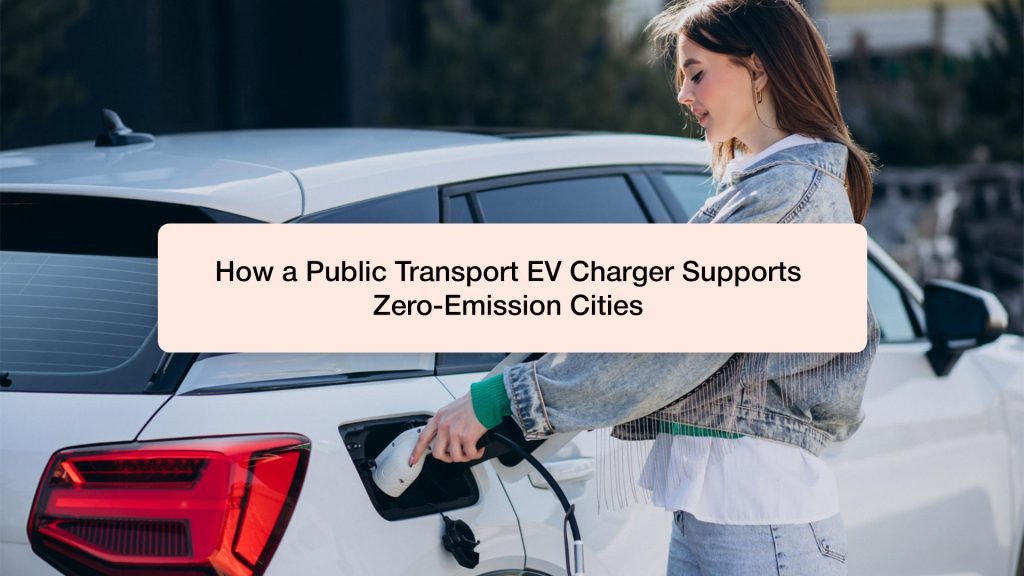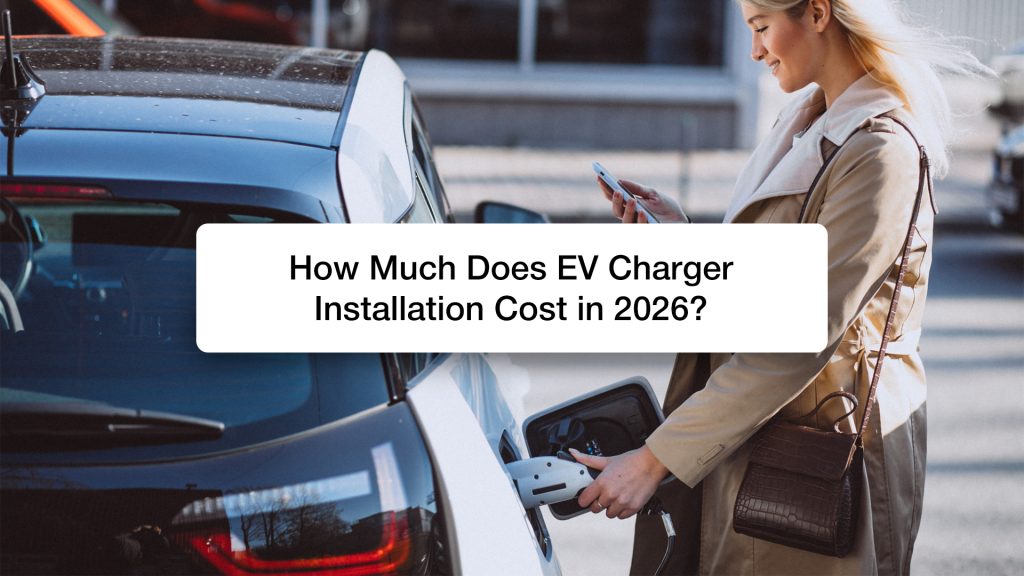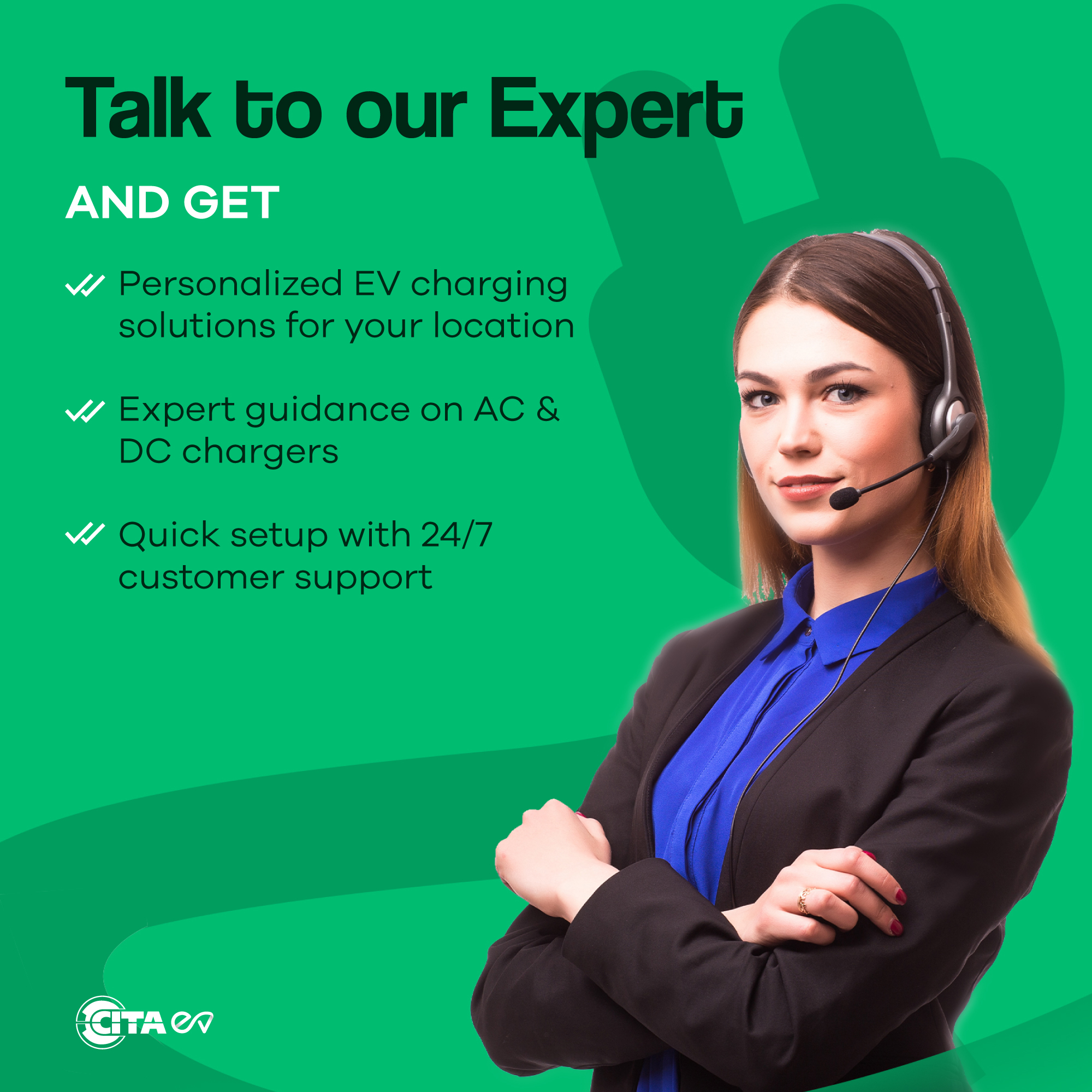With the rapid rise in electric vehicle (EV) adoption, many drivers are left wondering: Are all EV chargers compatible with every EV? To ensure a seamless charging experience, it’s essential to understand the different types of EV chargers, their compatibility, and the evolving charging infrastructure.
Since 2023, the EV landscape has undergone significant changes. In the UK alone, EV ownership has surged by 40%, driving the demand for efficient and accessible charging solutions. While most EVs can connect to standard charging stations, factors like connector types, charging speeds, and network compatibility can impact your charging experience. Whether you’re powering up at home or using a public charging station, understanding these differences is key to avoiding inconveniences and ensuring a smooth journey.
This guide dives deep into EV charger compatibility, exploring everything from home charging solutions to public station networks. You’ll learn how to identify the right charger for your vehicle, maximise charging efficiency, and stay informed about the latest advancements in EV charging technology. With CITA EV Charger’s innovative solutions, EV owners can enjoy a seamless and reliable charging experience. Whether you’re a new EV owner or looking to upgrade your charging setup, understanding these factors will keep your vehicle powered whenever and wherever you need it.
Understanding EV Chargers Compatibility

EV chargers are not universally compatible with all electric vehicles. Several factors determine which charger is suitable for your EV, including the charging connector type, charging speed, regional standards, and vehicle battery capacity. Understanding these elements will help you make informed decisions about EV chargers installation and ensure a hassle-free charging experience.
Charging Connector Types
Different electric vehicles use different charging connectors. In the UK, the most common EV chargers type 2 are widely supported across public EV charging stations UK and home chargers. However, fast and ultra-rapid charging stations often use CCS (Combined Charging System) or CHAdeMO connectors. Knowing which connector your electric vehicle in the UK supports is crucial for efficient charging.
Charging Speed: AC vs. DC Charging
The charging speed varies based on the type of charger. EV charging stations for home typically provide AC charging, which is slower but suitable for overnight charging. On the other hand, public EV charging stations often offer DC fast charging, allowing electric vehicles with the longest range to recharge quickly during long trips.
Geographic Charging Standards
Charging infrastructure varies by country, so it’s essential to consider geographic compatibility. In the UK, most EV chargers follow standardised connectors and tariffs, ensuring seamless charging for electric vehicles for UK drivers. However, imported EVs may require adapters or special considerations.
Vehicle Battery Capacity
The larger the electric vehicle battery, the longer it takes to charge. High-capacity batteries in electric vehicles with the longest range benefit from faster DC chargers, while smaller batteries charge efficiently at home. Understanding your vehicle’s battery capacity helps in choosing the right EV chargers installation for optimal charging.
Understanding the Different Types of EV Chargers

EV chargers come in three main categories based on their power output and charging speed. Choosing the right charger is essential for efficient electric vehicles charging, whether at home or at public EV charging stations UK.
1) Level 1 Chargers – Basic and Convenient for Home Use

Level 1 chargers offer a simple and accessible way to charge electric vehicles in UK using a standard household outlet (230V). With a power output of 1.4 kW to 2.4 kW, they add 3-5 miles of range per hour. While they require no additional EV chargers installation, they are the slowest charging option. Best suited for overnight charging, Level 1 chargers are ideal for drivers with short daily commutes.
2) Level 2 Chargers – Faster Charging for Home and Public Use

Level 2 chargers are the most common choice for home and public EV charging stations. With power outputs ranging from 3.3 kW to 22 kW, they can add 12-80 miles of range per hour, significantly reducing charging time. CITA EV Chargers offers 7kW, 11kW, and 22kW AC EV Chargers, making them ideal for EV charging stations for home and businesses. These chargers require professional EV chargers installation and support EV chargers type 2, the standard for most electric vehicles UK.
3) DC Fast Chargers – High-Speed Charging for Long-Distance Travel

For rapid charging, DC fast chargers provide 50 kW to 360 kW power, recharging electric vehicles battery up to 80% in just 20-40 minutes. These chargers are essential for highway EV charging stations UK, catering to electric vehicles with the longest range. CITA EV Chargers offers 60-360kW Fast and Ultra-Fast DC EV Charging Solutions, along with 44kW Dual AC EV Chargers that allow two vehicles to charge simultaneously—perfect for fleet operators and high-demand areas.
Understanding EV Charging Connectors: Which One Does Your EV Need?

Not all electric vehicles use the same charging connectors. The type of connector depends on factors such as charging speed, regional standards, and vehicle manufacturer compatibility. Whether you’re charging at home or using EV charging stations UK, knowing which connector your EV supports ensures a smooth charging experience.
1) Type 2 Connector – The Standard for Electric Vehicles in the UK
The Type 2 (Mennekes) connector is the most commonly used connector for electric vehicles UK and across Europe. It supports both AC and DC charging, making it ideal for various charging needs. Type 2 connectors are widely available at EV charging stations UK and are the standard for home EV chargers installation. CITA EV Chargers offers advanced EV chargers type 2, ensuring seamless compatibility for residential and commercial charging solutions.
2) CCS2 (Combined Charging System 2) – Fast Charging for Modern EVs
CCS2 (Combined Charging System 2) is the standard fast-charging connector used in most electric vehicles in UK, Europe, and Asia. It supports both AC and DC charging, making it a versatile choice for EV chargers. Many top manufacturers, including Tesla (in Europe), BMW, and Volkswagen, use CCS2 for their fast-charging models. CITA EV Chargers provides CCS2-compatible fast chargers, ensuring that EV owners can charge efficiently at both home and public EV charging stations for homes and businesses.
3) CHAdeMO – Fast Charging for Japanese EVs
The CHAdeMO connector is primarily used by Japanese electric vehicles, such as Nissan and Mitsubishi models. It supports DC fast charging, allowing vehicles to charge rapidly at public EV charging stations UK. While it is being phased out in favour of CCS2, CHAdeMO chargers are still available for older EV models. CITA EV Chargers ensures continued support for CHAdeMO users with high-quality fast-charging solutions.
Are All EV Chargers Compatible with Your Electric Vehicle?

Choosing the right EV chargers for your vehicle is essential to ensure a seamless electric vehicles charging experience. Not all chargers are universally compatible, so it’s important to consider key factors before plugging in at EV charging stations UK or installing EV charging stations for home.
1) Connector Type – Does the Charger Fit Your EV?
Different electric vehicles UK use different charging connectors. EV chargers type 2 are the standard for most electric vehicles in the UK, while some older models may require a Type 1 connector. Fast-charging options like CCS2 and CHAdeMO are also available at EV charging stations. CITA EV Chargers provides a range of compatible chargers to suit various vehicle models, ensuring effortless charging at home or public stations.
2) Charging Power – Is Your EV Battery Compatible?
The power output of EV chargers varies from 7 kW AC home chargers to 360 kW ultra-fast DC chargers. Ensuring that your electric vehicle’s battery can handle the charger’s output is crucial for optimal performance. CITA EV Chargers offers AC chargers with 7kW, 11kW, and 22kW options, perfect for residential and commercial use. For rapid charging, our DC chargers range from 60 kW to 360 kW, catering to electric vehicles with the longest range.
3) Software & Payment – Hassle-Free Charging Access
Many EV charging stations require authentication via mobile apps or RFID cards. Additionally, public chargers have varying electric vehicles tariffs, so it’s essential to check the cost before charging. CITA EV Chargers, a leading manufacturer in the UK, provides user-friendly solutions with certified AC and DC chargers tested by UKCA and CE authorities. Our chargers are OZEV-approved and come with installation support, warranty options (3 years for AC, 2 years for DC), and 24/7 customer assistance.
Charging at Home vs. Public EV Charging Stations: Which is Right for You?

As the adoption of electric vehicles in UK continues to grow, understanding the differences between EV charging stations for home and public charging is essential. Both options have unique advantages, depending on convenience, cost, and charging speed.
Home Charging – Convenient and Cost-Effective
Installing an EV charger at home is the most convenient way to keep your electric vehicles battery charged. With a dedicated home charging setup, you can avoid waiting at public EV charging stations UK and enjoy cost savings on electric vehicles tariffs.
Key Considerations for Home EV Charging:
Power Supply—A Level 2 charger requires a dedicated 240V supply for faster charging.Installation Cost—The cost of EV chargers installation at home typically ranges from £500 to £1,500 in the UK.
Charging Speed—A Level 2 EV chargers type 2 setup allows for overnight charging, ensuring your EV is fully charged by morning.
CITA EV Chargers offers 7kW, 11kW, and 22kW AC chargers, providing an efficient and hassle-free charging experience. Our AC chargers come with IP65 & IK10 ratings, wall-mounted or pole-mounted installation options, and 3-year extendable warranties.
Public EV Charging Stations – Essential for Long Trips and City Driving
Public EV charging stations UK are crucial for EV owners who travel long distances or lack home charging access. CITA EV Chargers provides a range of fast and ultra-fast charging solutions to meet the growing demand.
Types of Public EV Charging Solutions:
Public EV charging solutions in the UK come in different types to suit various charging needs, from slow overnight charging to ultra-rapid options for quick top-ups. The availability of these charging stations depends on location, vehicle compatibility, and charging speed. Here are the four main types of public EV charging solutions:
Slow Charging (AC Charging – 3kW to 7kW)
- Typically found in residential areas, workplaces, and some public locations.
- Best suited for overnight or long-duration charging.
- Common connectors: Type 2 (UK standard for AC charging).
Fast Charging (AC Charging – 7kW to 22kW)
- Available in shopping centers, hotels, and workplaces.
- Charges most EVs within a few hours.
- Common connectors: Type 2.
Rapid Charging (DC Charging – 50kW to 150kW)
- Found at motorway service stations, urban hubs, and commercial locations.
- Provides an 80% charge in 30–60 minutes.
- Common connectors: CCS, CHAdeMO.
Ultra-Rapid Charging (DC Charging – 150kW to 350kW)
- Ideal for long-distance travel, located along highways and major routes.
- Charges compatible EVs in 10–30 minutes.
- Common connectors: CCS.
To enhance the user experience, CITA EV Chargers provides the CITA EV App and Charge Point Management System, offering seamless access, real-time monitoring, and secure payments. Whether at home or on the go, CITA EV Chargers ensures reliable, high-performance charging for all electric vehicles in the UK.
Power Up Your EV Journey with CITA EV Chargers
While EV chargers are not universally compatible with all electric vehicles, understanding key factors like connector types, charging levels, and regional standards ensures a seamless electric vehicle charging experience. Whether you prefer EV charging stations for home or rely on commercial EV charging stations in UK, knowing your vehicle’s requirements will enhance convenience and efficiency. As the EV industry grows, so does the compatibility of EV chargers, making electric vehicles in the UK more accessible than ever.
Make the Smart Choice with CITA EV Chargers

Choosing the right EV chargers installation is essential for a seamless electric vehicles charging experience, whether at home or for commercial use. With CITA EV Chargers, you get reliable, high-performance charging solutions ranging from 7 kW to 360 kW designed for efficiency and convenience. Our UKCA & CE-certified, OZEV-approved chargers ensure top-tier safety and quality, while our CITA EV App and Charge Point Management System make charging smarter and easier. Whether you need EV charging stations for home or access to EV charging stations UK, our expert team offers 24/7 support and installation assistance to meet your needs. Don’t wait—experience the power of CITA EV Chargers today.
Contact us at [email protected] or visit www.citaevcharger.co.uk to find the perfect EV chargers and fast-charging solutions for your electric vehicles UK journey. Charge smarter, drive farther, and power your future with CITA EV Charger




